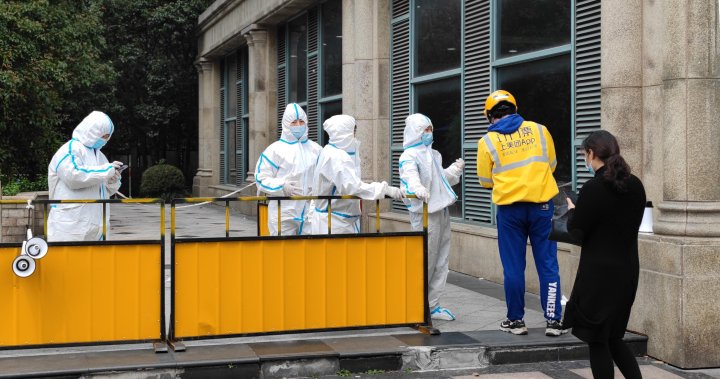
China to lock down Shanghai in two stages for testing as COVID-19 cases spike
Global News
Shanghai has battled a new COVID-19 surge for nearly a month and for Saturday it reported its highest daily number of cases since the initial outbreak in China receded.
China’s financial hub of Shanghai said on Sunday it would lock down the city in two stages to carry out COVID-19 testing over a nine-day period, after it reported a new daily record for asymptomatic infections.
Authorities said they would divide Shanghai into two for the exercise, using the Huangpu River that passes through the city as a guide. Districts to the east of the river, and some to its west, will be locked down and tested between March 28 and April 1. The remaining areas will be locked down and tested between April 1 and 5.
Public transport, including ride-hailing services, in these areas will be suspended when they are locked down, the city government said on its official WeChat account, adding that unapproved vehicles will not be allowed on the roads.
It also said that all firms and factories will suspend manufacturing or work remotely during the lockdown, apart from those involved in offering public services or supplying food.
“The public is asked to support, understand and cooperate with the city’s epidemic prevention and control work, and participate in nucleic acid testing in an orderly manner,” the government added.
Shanghai has battled a new COVID-19 surge for nearly a month and for Saturday it reported its highest daily number of cases since the initial outbreak in China receded. The city recorded 2,631 new asymptomatic cases, which accounted for nearly 60% of China’s total new asymptomatic cases that day, plus 47 new cases with symptoms.
While the number of cases in Shanghai remains modest by global standards, the city of 26 million people has become a testing ground for China’s “zero-COVID” strategy as it tries to bring the highly infectious Omicron variant under control.
Shanghai authorities have previously resisted a broad lockdown of the city to avoid destabilizing its economy and opted for a more bespoke “slicing and gridding” approach, which involves screening neighborhoods one by one.











